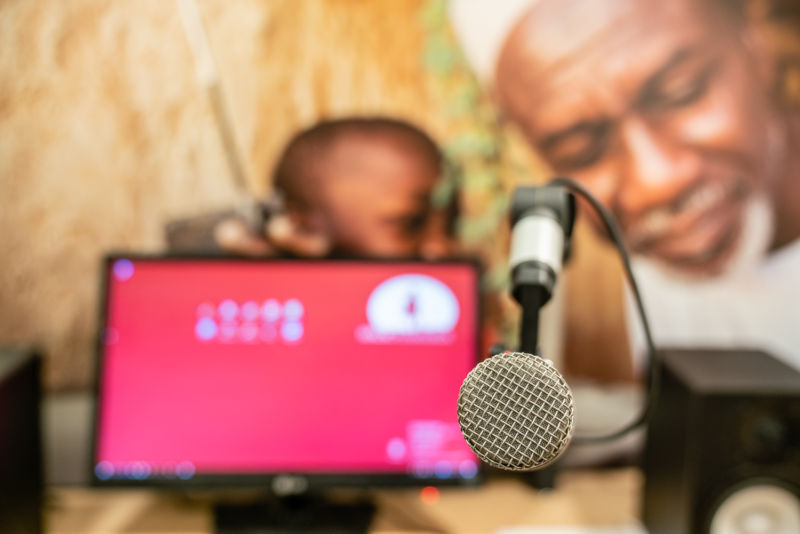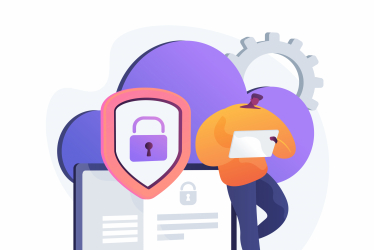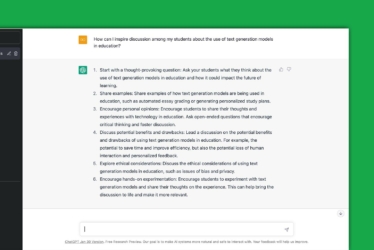Insights
Capturing the news from 2,000 daily messages from Sudan
Together with Radio Dabanga (Free Press Unlimited), we developed a chatbot for broader audience engagement. It allows listeners to report news events through online communication channels and receive news updates in return.

“At Dabanga, we used to have meetings each week to look over the Dabanga WhatsApp. But now, there are so many messages coming through that some of the journalists say it gives them a headache!” Ameen looks away and chuckles at this comment; it is hard not to be infected by his laughter which often rings through the office at Radio Dabanga.
Laughter, punctuated by jovial calls between desks, loud phone conversations and ‘original’ ringtones, is what brings the Radio Dabanga office alive from 11am to as late as 11pm every day. They are faced daily with streams of reports about death, violence, rape, illness, food and fuel shortages, and censorship in Sudan. Far away from these events, but confronted with them every day, members of the Radio Dabanga team have a demanding, often depressing job. But whenever I walk into the office, I am greeted with a firm handshake and a friendly talk as is custom in Sudan.
New media: A blessing and a curse
This is how I am greeted by Ameen when we start our interview. Since he arrived in 2016, a ‘Dabanga WhatsApp’ has been set up so listeners can contact Radio Dabanga to report newsworthy events they have witnessed. The platform receives more than 2,000 messages per day containing vital information from anyone and everyone on relevant events in Sudan. This information is used to help with triangulation and verification of the news of the day: “A few years ago we were spending a lot of time in the studio calling people.” Nowadays, Ameen “can produce all of the news from WhatsApp. I have a lot of contact with many people in different regions of Sudan.” He shows me the tablet used to monitor the Dabanga WhatsApp, and I am able to scan through an overwhelming number of messages.
Although the constant stream of messages which pour in strengthen the interactive relationship Ameen and the team have with their audience they also present a challenge. The challenge is to process all the information that is shared and act on every message that the editors receive. Each journalist at Radio Dabanga already has hundreds of groups that they keep in contact with on their personal profiles, so keeping up with the Dabanga WhatsApp and social media can be, at best, “difficult”. In this way, new media is both a blessing and a curse!
But the importance of addressing listeners’ messages is made clear by Ameen, who explains that “especially in places where we don’t have personal contacts, if I don’t read the Dabanga WhatsApp, we will miss out on the news.” Additionally, it helps ensure that Radio Dabanga is reporting current events from all over Sudan in an unbiased and verifiable manner.
Chatbot to communicate with listeners
After a first collaboration at the Hacking Aid Hackathon in 2017, Dabanga and Humanity X are now teaming up to find a technical solution to the message overload. The aim is to help Dabanga make full use of a vast network of listeners who are sending messages with useful information. HumanityX has the skills to conduct early exploration of digital technologies that can be helpful, plus experience working with sensitive humanitarian operations.
Together, the organisations hope to explore whether a chatbot can support Radio Dabanga to obtain relevant information on news events from their listeners, and provide news updates in return.
ChitChat: Saving the important news
ChitChat will be a program that filters incoming chat messages depending on content and date. It runs a chatbot that interacts with the sender to clarify the event he or she reports (see image below). With all this input, Chitchat creates a dataset which is translated into a structured feed, readied for the editors to analyse in a dashboard. They define the categories themselves, such as armed conflict, health issues, and detentions. Basically, it will allow the Dabanga journalists to quickly categorise, prioritise and further verify this information.
This is great news for Ameen: “It is a lot of work if you want to go one by one checking the messages. If ChitChat can analyse this, arrange all the messages, and organise them in categories, it will give me more time to focus on producing high quality journalism.” The chatbot will also give the listeners an instant reply, so they don’t have to wait for the team, who “cannot reply all the time to so many people”.
The vision of Radio Dabanga is that everyone in Sudan, from displaced people to students in cities, knows that their everyday experiences are being taken seriously (read more about their vision here). By engaging with every person who sends a message individually, Radio Dabanga can give some of the most marginalised people in Sudan a platform on which to speak. The chatbot being developed with HumanityX will be a new step in ensuring that those speaking can be heard.
And there will always be new ways to develop the chatbot further in the future: “I think it’s a wonderful idea; of course we expect hurdles in development, but we will overcome them and already have aspirations for categorising more complicated content like voice messages,” says Ameen. So there are many new adventures to come!




